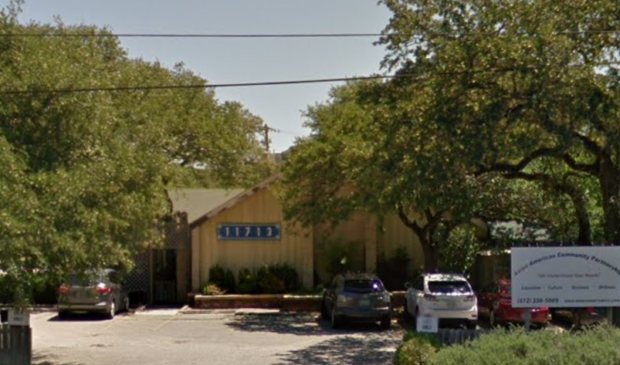Asian center zoning change moves forward
Tuesday, December 4, 2018 by
Jo Clifton On Thursday, Council Member Alison Alter offered a zoning solution to satisfy the needs of the Asian American Cultural Center at 11713 Jollyville Road, yet placate neighbors fearful of increased traffic and apartment buildings looming over their single-family neighborhoods.
Amy Wong Mok, CEO of the cultural center, and architect Gary Wong laid out the changes they envision for the center, including a school and housing for senior citizens. They asked for a zoning change from Limited Office (LO) to Community Commercial-Mixed Use (GR-MU), which would have allowed for a 60-foot height, considerably more than the neighbors want to see so close to their homes.
Gary Wong explained to Council that Asian Americans have difficulty retiring. In China, he said, the elderly go to live with their children, but in the U.S. that is not always possible or desirable. So, the Asian American Cultural Center would like to provide apartments for the elderly where they will be near children attending a school or daycare next door.
Mok was briefly overcome with emotion as she talked about caring for the “vulnerables” of the community.
Still, several neighbors accused cultural center representatives of dishonesty. Neighbor Mike Topel said people living in nearby single-family homes do not want to see any buildings taller than three stories. “I do not believe that this will be a senior living center,” Topel said, adding that the proposed zoning change would ruin the neighborhood with increased traffic and increased flooding.
Mok told Council that she had planned to offer all the residences only to senior citizens. However, she found out at the Zoning and Platting Commission that they would not be allowed to limit the residences to seniors because they were seeking commercial, not residential, zoning.
Topel also said he was concerned that the cultural center’s plan would mean elimination of a number of heritage trees on the property.
Neighbor Laura Kennedy said that she and her neighbors already have to sit through four to five light cycles in order to exit the neighborhood on busy Jollyville Road. She asked that the city perform a traffic impact analysis and that the zoning not be changed until that was accomplished. According to backup documents on the zoning request, the city waived the TIA, likely because the zoning change is unlikely to generate more than 2,000 trips a day.
Neighborhood leader Timo Xzavier told Council a survey of his neighbors found that they oppose having more than three stories on the site by a 4 to 1 margin. However, when Alter asked him whether there was an official vote from Rain Tree Estates, he told her that the association has never made itself an official neighborhood group.
Alter offered a motion to include several amendments when the item returns to Council for second and third readings. Under her plan, the entire property would be rezoned from Limited Office to Community Commercial-Mixed Use-Conditional Overlay (GR-MU-CO) with an overall maximum height of up to 55 feet, about five stories.
In addition, the maximum height of any building within 50 feet of the northeast property line close to Rain Forest Cove could not exceed 29.5 feet. Uses would be limited to what is allowed under General Office (GO) or the following under Community Commercial (GR): food preparation, food sales, cultural services, personal improvement services, indoor entertainment and restaurant. Any restaurant would be limited to 7,000 square feet.
Alter’s motion also included a prohibition on vehicular access to Rain Forest Cove. Attorney Michael Whellan of Armbrust & Brown said his client would agree to the conditions set out in Alter’s motion.
Council Member Jimmy Flannigan said he agreed with all of what Alter was trying to do, but offered a less specific motion that would depend on compatibility standards as laid out in city code. That would have increased the height somewhat in certain areas. Alter said she wanted to go with her original motion.
The vote on Flannigan’s motion was 5-5 with Mayor Steve Adler and Council members Delia Garza, Pio Renteria and Greg Casar voting with Flannigan, and Council Member Ellen Troxclair not on the dais. With the tie vote, Alter’s motion prevailed. The matter will come back for second and third reading in two weeks.
Image courtesy of Google Maps.
The Austin Monitor’s work is made possible by donations from the community. Though our reporting covers donors from time to time, we are careful to keep business and editorial efforts separate while maintaining transparency. A complete list of donors is available here, and our code of ethics is explained here.
You're a community leader
And we’re honored you look to us for serious, in-depth news. You know a strong community needs local and dedicated watchdog reporting. We’re here for you and that won’t change. Now will you take the powerful next step and support our nonprofit news organization?











